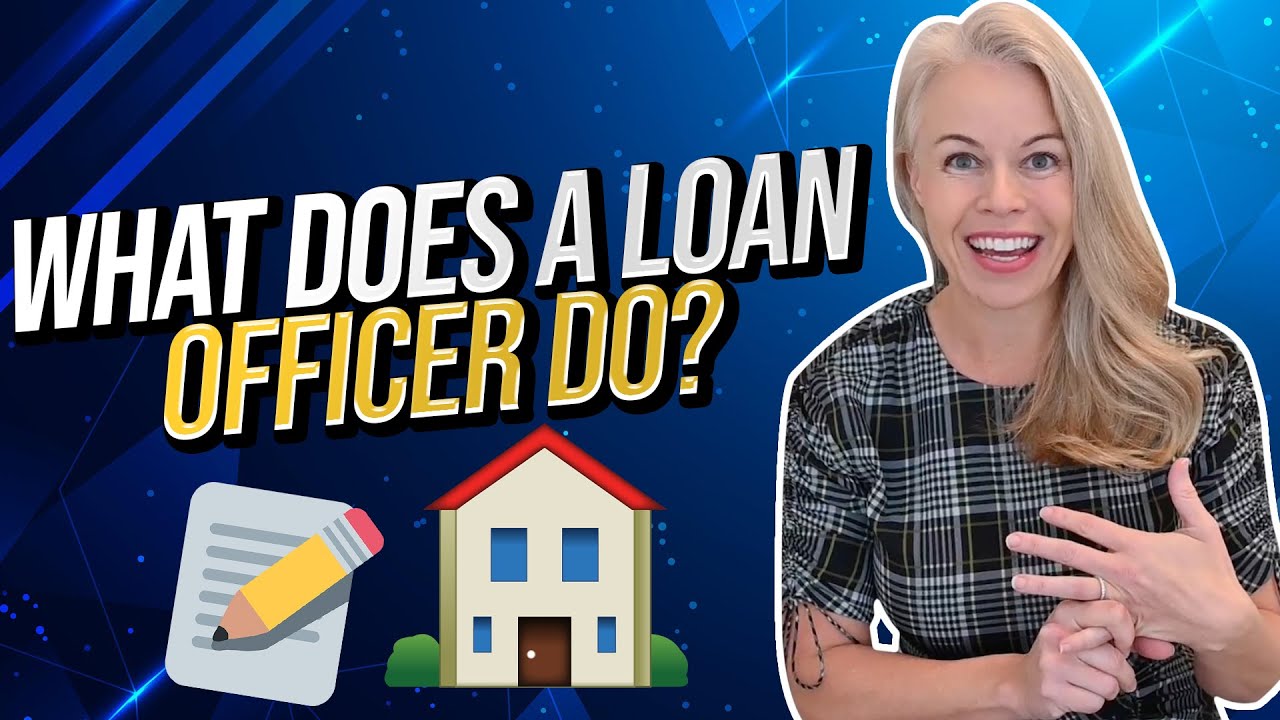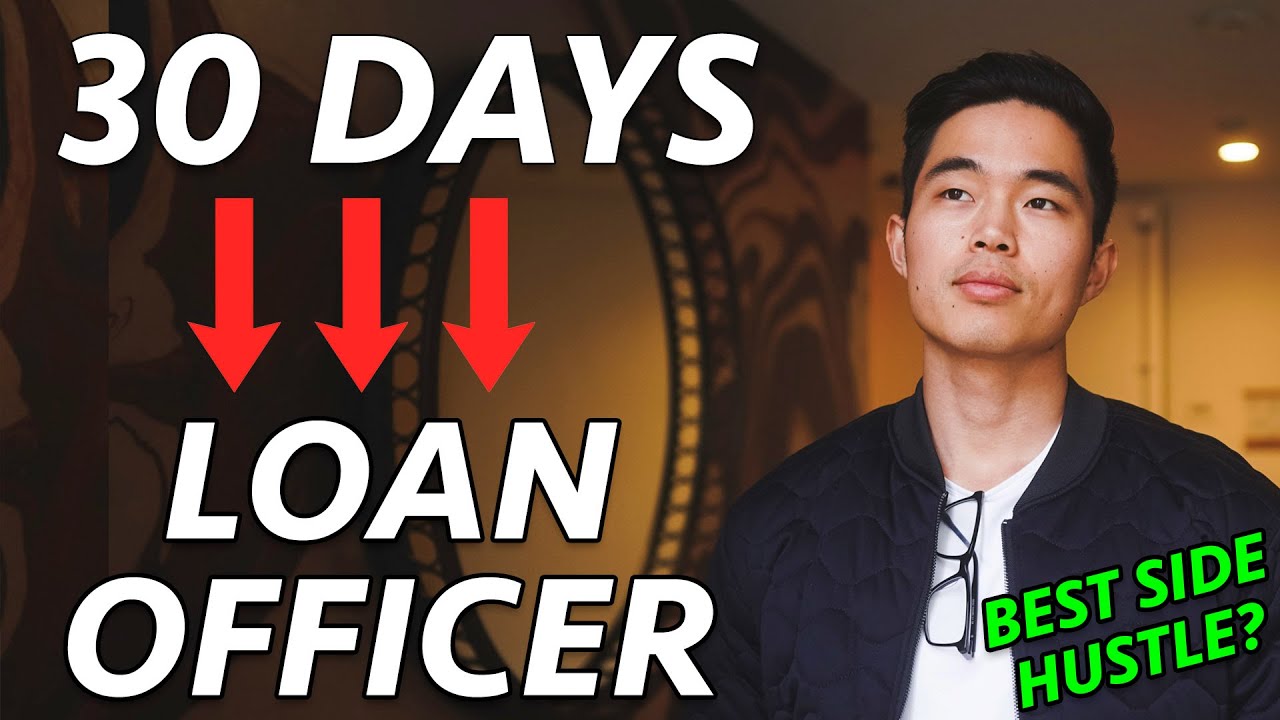What its Like To Be a Mortgage Loan Officer in August 2021?
You've probably heard of loan officers if you're seeking to get a mortgage for your dream house. To acquire a mortgage, you must work with a certified loan officer, but what exactly does a loan officer do?
“„Why is it important to deal with a loan officer, and what is their function in the mortgage loan process?
A loan officer can assist you in determining the best loan type and mortgage conditions for you. Because a loan officer is such an important part of the mortgage process, understanding how to pick a loan officer and what traits to look for are critical in ensuring you receive the best mortgage for you.
What Is A Loan Officer?
You may be aware that locating a loan officer is a critical step in the loan application process. Let us talk about what loan officers do, what expertise they need to perform a good job, and if loan officers are the best alternative for borrowers throughout the loan application screening process.

What does a Loan Officer \ Loan Originator Do? 🤔📝 (Loan Officer Day In The Life)
What Does A Loan Officer Do?
A loan officer works for a bank or an independent lender and helps borrowers apply for loans.
Because many customers deal with loan officers for mortgages, they are commonly referred to as mortgage loan officers, however many loan officers also assist borrowers with other loans.
When you apply for a loan, a loan officer determines if you are qualified to go underwriting. A loan officer will interview you and assess your creditworthiness.
If a loan officer feels you are qualified, they will suggest you for approval, and you will be allowed to proceed with the loan application process.
What Do Loan Officers Know?
Loan officers must be able to communicate with both customers and small company owners, and they must be well-versed in the sector.
Loan officers should be familiar with the banking industry's laws and regulations, as well as the lending products offered and the documents necessary for consumers to receive a loan.
Why Loan Officers Are Better For Borrowers?
When it comes to algorithms that act in lieu of a loan officer, many prospective borrowers may face prejudice. You can present your case for loan approval to a human being rather than a machine if you can meet with or talk with a loan officer.
In summary, engaging with a loan officer yields better outcomes than going via a bank or lender that uses computer algorithms to automate the process.
How Much A Loan Officer Costs?
Some loan officers are compensated by commissions. Because of the magnitude and workload connected with the loan, mortgage loans typically result in the highest fees, however, commissions are generally a negotiated prepayment price. With all that a loan officer can accomplish for you, they are usually well worth the money.
The Role Of A Loan Officer
While all loan officers must be certified, part of the appeal of this career is that it pays well without having a professional degree. However, it is not a career for everyone.
A Loan Officer’s Responsibilities
A loan officer's responsibilities include visiting loan applicants and completing a large amount of documentation, particularly for mortgages. Loan officers must also have extensive industry expertise and strong customer service abilities.
A loan officer is licensed by the appropriate federal and state authorities and follows the lending process's requirements. When working with you, a loan officer will bring their experience to the table.
Loan officers are well-versed in the many sorts of loans that a lender may provide, and they can advise you on the best option for you and your situation.
Consult with your loan officer about your requirements. They can point you in the direction of the appropriate loan type for your case, whether it's a conventional loan or a jumbo loan. They are also able to assist with reverse mortgages and development financing.
A Loan Officer's Role In The Screening Process
When you apply for a loan, your loan officer will be your point of contact. They will do research and examine your financial history to determine whether you are eligible for a mortgage.
You won't have to contact all of the persons involved in the mortgage loan process on a frequent basis, such as the underwriter, real estate agent, settlement attorney, and others, because your loan officer will be the point of contact for all of them.
This will relieve you of the stress of having to keep track of all the different representatives and their responsibilities.
Because the loan transaction process may be difficult and costly, many customers choose to interact with a person rather than a machine.
This is why banks may have many branches: they want to accommodate potential borrowers in different locations who wish to meet with a loan officer in person.
Meeting with a loan officer is your chance to demonstrate your creditworthiness. You can use this opportunity to clarify anything that could harm your creditworthiness, such as:
- A missed payment on your credit card
- Gaps in employment
- Drops in your credit score
Loan officers' responsibilities also include addressing prospective borrowers' questions, so take advantage of this chance to ask yours.
A loan officer will screen you to see whether you are eligible for underwriting. They will consider your yearly wage, credit score, debt-to-income ratio, and overall debt amount, but these aren't the only things that will affect your ability to qualify for a mortgage.
If you can create a connection with a loan officer and explain your predicament to a human being, you may have a higher chance of receiving a loan.
A Loan Officer's Role In The Loan Application Process
The mortgage application process can be intimidating, particularly for first-time homebuyers.
When you deal with the proper loan officer, though, the procedure is actually rather straightforward. When it comes to applying for a mortgage, the procedure is divided into six stages:
- Pre-approval: This is the stage in which you locate a loan officer and get pre-approved.
- Shopping for a home: This is the period you've been anticipating – looking for your dream home.
- Mortgage application: During this stage, a lender will analyze your application and offer you a loan estimate.
- Loan processing: Loan processors will verify everything on your application at this step.
- Underwriting: The underwriter assesses if you are a good loan applicant for the lender during this step.
- Closing: During this stage, you will sign all of the final paperwork and pay for the closing expenses.
What is the function of your loan officer at these stages? If you are approved following the screening process, your loan officer will assist you in preparing your application.
During the loan processing phase, your loan officer will contact you if the loan processors have any queries regarding your application.
Your loan officer will next forward your application to an underwriter, who will evaluate your creditworthiness.
If your loan is approved by the underwriter, your loan officer will gather and prepare the necessary loan closing paperwork.
The amount of effort required by the loan officer varies on the sort of loan you're asking for. A secured loan often necessitates more paperwork than an unsecured loan.
Because of the many mortgage laws at the federal, state, and municipal levels, mortgage loans, in particular, are renowned for needing a considerable quantity of documentation.
A good loan officer can play an important role in ensuring that your loan application proceeds successfully.
How To Choose A Loan Officer?
Home purchasing may be an intimidating and stressful process at first, but the proper loan officer can pave the way for a smooth loan application process. So, how can you choose the best loan officer for you?
Begin your search with lenders who have a strong record for surpassing their client’s expectations while adhering to industry norms.
Once you've decided on a lender, you can start narrowing down your options by interviewing loan officers you might like to deal with.
When selecting a loan officer, you should first consider location. A lender may have branches around the country, so look for one that is near to you.
At Assurance Financial, you can engage with one of many loan officers. You may look for loan officers in your area by entering your zip code.
When your search has been limited down to a few options, you may ask useful questions that will bring you to the best loan officer for you.
In a conversation with a loan officer, you may wish to ask the following questions:
Do You Offer First-Time Homebuyer Loan Programs?
Is there a first-time homebuyer financing program available via this lender? If so, find out what services they provide and whether you are eligible for any of them. Discover what may be a suitable fit for your circumstance.
FHA loans, USDA Rural Loans, and VA loans may be available to you.
- FHA loan: An FHA loan is backed by the Federal Housing Administration and is designed for borrowers who want to finance a house with a modest down payment and a low-interest rate. You may be able to put down as little as 3.5 percent on a home depending on your credit score.
- USDA Rural Development loan: A USDA Rural Development loan is backed by the United States Department of Agriculture and is designed for lower-income earners who want to buy a home in a qualified rural or suburban region. A higher credit score is required than for an FHA loan, but you may be able to receive a USDA loan with no down payment.
- VA loan: A VA loan is backed by the United States Department of Veterans Affairs and is available to qualified service members, veterans, and surviving spouses. You may usually get a loan with a low-interest rate and no down payment.
Inquire with a loan officer about if any of these programs are available and what your alternatives are.
Do You Offer Assistance Programs For Down Payments?
Some lenders may provide down payments and closing cost assistance programs. If you are qualified for an assistance program, you may be able to move into your new home sooner, choose a 30-year fixed-rate loan, or obtain reduced private mortgage insurance.
Down payment assistance programs often take the following forms:
- Loans to be repaid alongside your mortgage
- Loans to be repaid when you sell, move or refinance
- Grants that you don’t have to repay
Down payment assistance programs can be especially beneficial for first-time homebuyers who have limited funds but do not want to put off moving into their ideal house until they have saved a 20% down payment.
Because saving for a down payment can take years for many prospective borrowers, these aid programs can make a significant difference in your ability to get a mortgage for your dream house.
What Is The Best Type Of Mortgage For Me?
Make sure to offer the loan officer as much information as possible about your position and to answer any questions they may have.
They may propose specific loans for you, so get those alternatives in writing. This will assist you in learning about each form of loan and its benefits.
Inquire about any details you're not sure about. If a figure appears to be unusually high or low, ask the loan officer to clarify.
What Is The Estimated Cost Of The Loans You Recommend?
Another thing to consider when deciding which loan officer is the best fit for you is their cost estimate for the loan alternatives they propose. A loan estimate details all of the costs connected with a loan, including closing fees.
Though the estimates are based on current interest rates, which can vary, they can still give you an indication of how much the loan will cost. Request all of these quotes on the same day to ensure that they are fair and comparable.
During your loan officer interview, ask these kinds of questions. The answers a loan officer offers, as well as their readiness to answer your inquiries, will suggest whether or not you wish to continue your professional connection with this loan officer.
The Characteristics Of A Good Loan Officer
- Financial skills
- Time management skills
- Knowledge of financial software
- Customer service
- Thoroughness
- Confidentiality
- Analyzing information
- Decision making
- Professionalism
- Quality focus
- Negotiation skills

How to Become a Mortgage Loan Officer! (Step by Step)
How To Become A Mortgage Loan Officer?
Here are five stages that will walk you through the process of becoming a mortgage loan officer.
Earn A Bachelor's Degree
Although loan officers must have high school graduation, a bachelor's degree in business, economics, finance, or a similar subject can assist one land a job in this sector. Accounting, mathematics, finance, economic statistics, and business statistics are common courses in these degrees.
Loan officers must be able to properly answer any questions clients may have and help them through the loan application process, thus they must have great interpersonal and communication skills. You can take classes in communications, public speaking, and psychology while in school.
Gain The Necessary Work Experience
Previous experience is highly valued by many employers. This is especially true for people who do not have a bachelor's degree and are looking for work after graduating from high school. Aspiring loan officers can gain experience in the industry by working in a number of contexts, such as customer service, banking, and sales.
Completion Of On-the-Job Training
Participating in on-the-job training is required regardless of a loan officer's degree. Depending on the work environment, the sort of training received may vary and may involve a combination of informal and company-sponsored training.
Some training with specialist software, particularly for individuals working in mortgage underwriting, may also be provided.
Obtain A License As A Mortgage Loan Officer
All mortgage loan officers are required to be licensed as mortgage loan originators (MLO). Completing 20 hours of necessary study, passing a test, and passing credit and background checks are all part of the procedure. The MLO test has a national component as well as a state component that is specific to each state.
Continuing education credits must be completed in order to keep an MLO license, which must be renewed on an annual basis.
Each year, this usually necessitates the completion of eight hours of continuing education classes. Other criteria may differ from state to state.
Become Certified
Although certification is not required for loan officers, it may increase career opportunities. Certification is available through the Mortgage Bankers Association (MBA) and the American Bankers Association (ABA). The ABA offers the following certifications:
- Certified Financial Marketing Professional (CFMP)
- Certified Lender Business Banker (CLBB)
- Certified Trust and Financial Advisor (CTFA)
For mortgage bankers, the MBA provides a number of certification choices, including commercial, residential, executive, and master.
These qualifications need a certain length of work experience, the passing of a test, and the completion of continuing education courses.
The ABA's certifications are typically renewed every three years. The renewal procedure will vary, but it may involve completing continuing education courses, paying a yearly fee, and following the Professional Code of Ethics of the Institute of Certified Bankers.
The MBA's CMB credentials must be renewed every two years. To keep your certification, you must complete five points of continuing education activities each year.
This can be done by completing the MBA curriculum, serving on committees, or visiting conferences and conventions.


